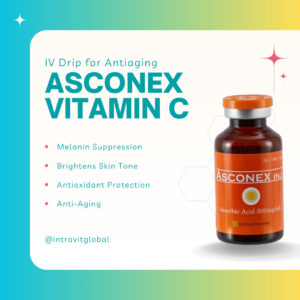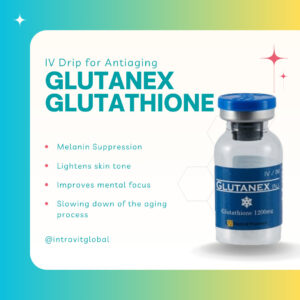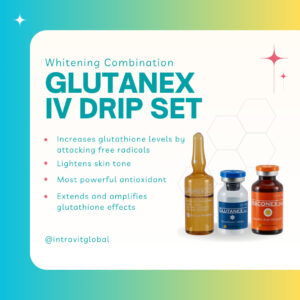7 Ways to Slow Down Aging in Your 40s
Table of Contents
The aging process is a natural part of life, but scientific research has shown that we can influence how our bodies and minds age, especially during our 40s – a crucial decade for implementing anti-aging strategies. While we cannot stop time, we can take proactive steps to maintain our youth, vitality, and health through evidence-based approaches. This comprehensive guide explores seven practical methods to slow down aging, backed by scientific research and expert recommendations. Whether you’re approaching your 40s or already in them, these strategies can help you age more gracefully and maintain optimal health.
1. Optimize Your Sleep Quality
Quality sleep is perhaps the most powerful anti-aging tool at our disposal. During deep sleep, our bodies undergo crucial repair processes, including cell regeneration and the production of growth hormones that maintain skin elasticity and muscle mass. Adults in their 40s should aim for 7-9 hours of uninterrupted sleep nightly. Create a sleep sanctuary by maintaining a cool, dark room temperature between 60-67°F (15-19°C). Establish a consistent bedtime routine, avoiding blue light from electronic devices at least one hour before sleep. Consider using blackout curtains, white noise machines, and comfortable bedding to enhance sleep quality. Regular sleep patterns also help regulate cortisol levels, reducing stress-related aging effects and improving overall cellular repair mechanisms.
2. Enhanced Nutrition Strategy
Your 40s require a sophisticated approach to nutrition that goes beyond basic healthy eating. Focus on consuming foods rich in antioxidants, which combat free radicals and reduce cellular damage. Include colorful fruits and vegetables, particularly berries, leafy greens, and orange produce high in beta-carotene. Incorporate omega-3 fatty acids through fatty fish, chia seeds, and walnuts to support brain health and reduce inflammation. Protein becomes increasingly important as muscle mass naturally declines; aim for 1.2-1.6 grams per kilogram of body weight daily. Include collagen-rich foods or supplements to support skin elasticity and joint health. Hydration is crucial – drink at least 2-3 liters of water daily to maintain cellular function and skin plumpness.
3. Strategic Exercise Programming
Exercise in your 40s should focus on maintaining muscle mass, bone density, and metabolic health. Incorporate resistance training at least three times weekly, focusing on compound movements that engage multiple muscle groups. Include high-intensity interval training (HIIT) twice weekly to boost growth hormone production and metabolic efficiency. Don’t neglect flexibility and mobility work – incorporate yoga or stretching sessions to maintain joint health and prevent age-related stiffness. Balance training becomes increasingly important; include single-leg exercises and stability work in your routine. Remember to allow adequate recovery time between sessions, as recovery capacity typically decreases with age.
4. Stress Management Techniques
Chronic stress accelerates cellular aging through various mechanisms, including telomere shortening and increased inflammation. Develop a comprehensive stress management strategy incorporating both quick techniques for immediate relief and long-term practices for resilience. Regular meditation or mindfulness practice can reduce cortisol levels and improve cellular health. Implement breathing exercises throughout the day, particularly during stressful situations. Consider adaptogens like ashwagandha or rhodiola to help regulate stress responses. Create boundaries between work and personal life, and practice regular digital detoxes to reduce mental overwhelm. Engaging in hobbies and maintaining social connections also plays a crucial role in stress reduction.
5. Skincare and Sun Protection
Your 40s are crucial for implementing an effective skincare routine that focuses on both prevention and repair. Incorporate retinoids to stimulate collagen production and cell turnover. Use vitamin C serum in the morning for antioxidant protection and brightening effects. Never skip sunscreen – use broad-spectrum SPF 30 or higher daily, even on cloudy days. Consider peptide-based products to support skin structure and ceramides to maintain barrier function. Monthly facial treatments or gentle chemical peels can help maintain skin health. Remember that skin aging isn’t just about products – protect your skin from environmental damage through protective clothing and avoiding peak sun hours.
6. Hormone Balance and Regular Check-ups
Hormonal changes in your 40s can significantly impact aging. Regular medical check-ups become crucial for monitoring and maintaining optimal hormone levels. Have your thyroid function, vitamin D, and other key hormones checked annually. Consider bioidentical hormone replacement therapy under medical supervision if needed. Track symptoms of perimenopause or andropause and address them proactively. Support your endocrine system through lifestyle choices – limit exposure to endocrine disruptors in plastics and personal care products. Incorporate adaptogenic herbs and foods that support hormone balance naturally, such as maca root and evening primrose oil.
7. Cognitive Health Maintenance
Maintaining cognitive function is essential for healthy aging. Engage in regular mental stimulation through learning new skills, languages, or musical instruments. Practice cross-hemispheric activities that engage both sides of the brain. Include brain-healthy nutrients like DHA, phosphatidylserine, and acetyl-L-carnitine in your diet. Social engagement plays a crucial role in cognitive health – maintain strong social connections and engage in group activities. Consider nootropics or brain-supporting supplements under medical supervision. Regular cardiovascular exercise has been shown to improve brain plasticity and cognitive function, so maintain consistent aerobic activity.
Conclusion
Slowing down aging in your 40s requires a holistic approach that addresses multiple aspects of health and wellness. By implementing these seven strategies consistently, you can significantly impact how you age both internally and externally. Remember that small, consistent actions compound over time to create significant results. Start incorporating these practices gradually, and make them sustainable habits rather than short-term solutions.
Frequently Asked Questions
- How early should I start implementing anti-aging strategies?
The best time to start is now, regardless of your age. However, prevention is better than cure, so beginning these practices in your 30s or early 40s yields optimal results. - Can aging be reversed once it has occurred?
While some aging effects can be improved or partially reversed through lifestyle changes, prevention is more effective. Focus on preventing further aging while improving current health markers. - How long does it take to see results from anti-aging practices?
Some benefits, like improved energy and mental clarity, can be noticed within weeks. However, significant visible results typically take 3-6 months of consistent practice. - Are expensive anti-aging products necessary?
Not necessarily. The most effective anti-aging strategies involve lifestyle changes and basic skincare. Expensive products may help but aren’t essential for good results. - Can stress really accelerate aging?
Yes, chronic stress has been scientifically proven to accelerate cellular aging through various mechanisms, including telomere shortening and increased inflammation.
-
Hot-Sale
Asconex Vitamin C (Ascorbic Acid) IV Drip for Antiaging, Melanin Suppression, Antioxidant and Skin Brightness Benefits
£38.00 – £70.00Price range: £38.00 through £70.00 Select options This product has multiple variants. The options may be chosen on the product page -
Hot-Sale
Glutanex Glutathione 1200mg IV Drip for Antiaging, Melanin Suppression, Antioxidant Skin Brightness Benefits
£65.00 – £120.00Price range: £65.00 through £120.00 Select options This product has multiple variants. The options may be chosen on the product page -
Hot-Sale
Glutanex IV Drip Set, Whitening Combination Kit with Glutathione, Vitamin C, Lipoic Acid for Antiaging, Skin Brightness Benefits
£30.00 – £250.00Price range: £30.00 through £250.00 Select options This product has multiple variants. The options may be chosen on the product page
Checkout our Facebook Page and leave your review about our Health Care Products.







